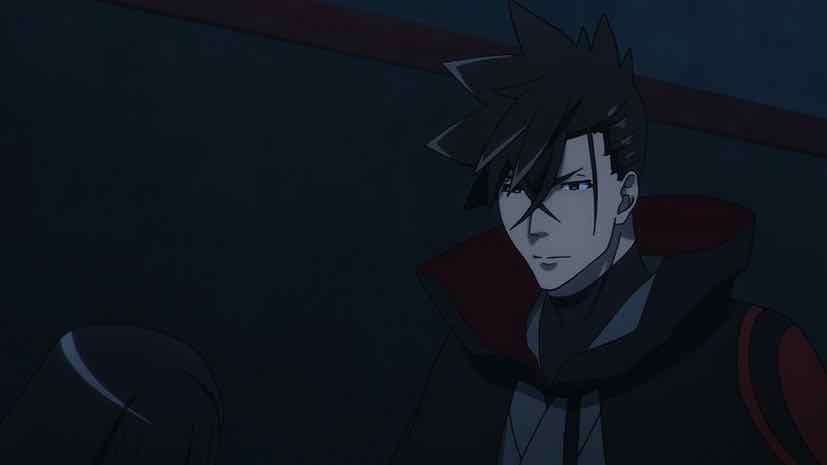 In practical terms, the moment Kanou offered that unbitten coin to Yuuen always felt like the beginning of the end. For the Reben-ji, and for the status quo in Revenger. I think Urobuchi is asking an interesting question here, though, about whether there’s any moral difference. Superficially Yuuen and Sada (that’s Suwabe’s priest) and the groups they lead seem very different both materially and ethically. But they both get paid to kill people on request. Do tooth marks on a lump of soft metal really make one distinct from the other?
In practical terms, the moment Kanou offered that unbitten coin to Yuuen always felt like the beginning of the end. For the Reben-ji, and for the status quo in Revenger. I think Urobuchi is asking an interesting question here, though, about whether there’s any moral difference. Superficially Yuuen and Sada (that’s Suwabe’s priest) and the groups they lead seem very different both materially and ethically. But they both get paid to kill people on request. Do tooth marks on a lump of soft metal really make one distinct from the other?
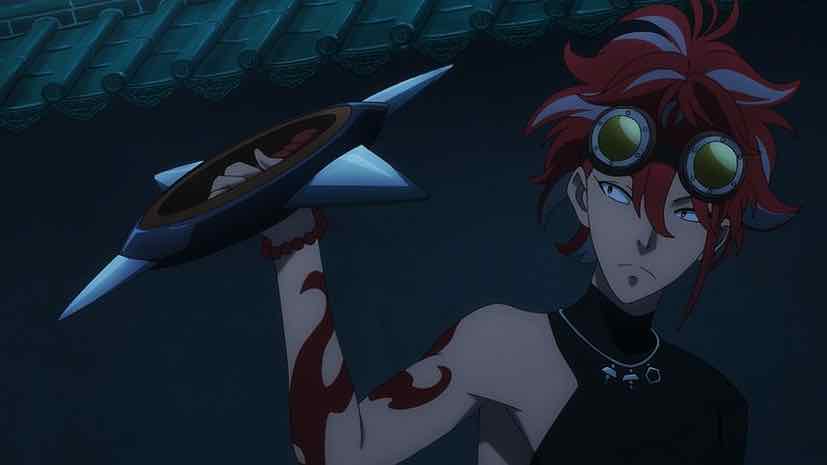 These men (and Nio) have had the air of tragic figures from the start, notwithstanding their being hired killers. The road they were on led to only one place and it’s never seemed likely, dealing with the sort of people they deal with, that they were likely to escape it. But that coin was the moment of the truth, because Yuuen had to make a choice. There was no escaping that – refusing the coin would have been a choice too. He tried to take the middle path but that was never an option. Pick a side and live (and die) with the consequences – no other options were on the table.
These men (and Nio) have had the air of tragic figures from the start, notwithstanding their being hired killers. The road they were on led to only one place and it’s never seemed likely, dealing with the sort of people they deal with, that they were likely to escape it. But that coin was the moment of the truth, because Yuuen had to make a choice. There was no escaping that – refusing the coin would have been a choice too. He tried to take the middle path but that was never an option. Pick a side and live (and die) with the consequences – no other options were on the table.
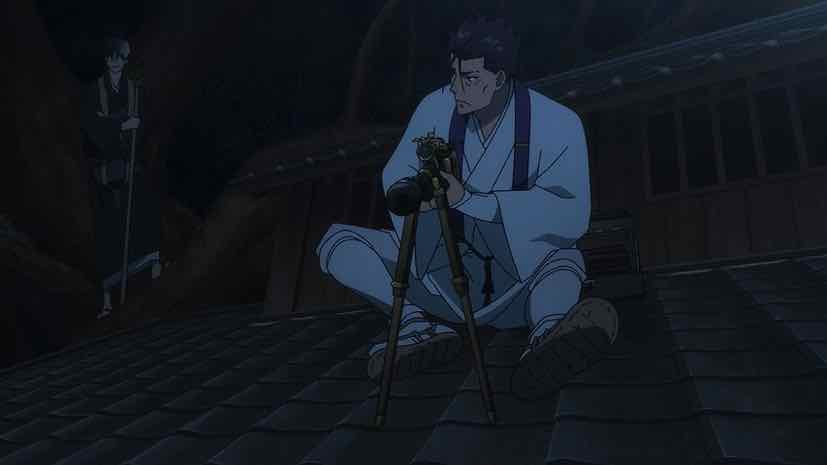 Urobuchi’s tweak of making the English rather than the Portuguese or Dutch the European element here is an interesting one. It’s they and the corrupt Japanese on the one side here, with the Chinese under Lin Zexu’s hand Liu on the other (making the Chinese to good guys is a rarity in anime). Once Liu is shot the Reben-ji on the ground have to decide on the spot, and since it’s Raizou that choice is to help Liu. Another of Sada’s men arrives to finish what his sniper has started, but it’s a standoff between he and Souji and Raizou. They take Liu back to their base where Teppa can try and stabilize him for the moment.
Urobuchi’s tweak of making the English rather than the Portuguese or Dutch the European element here is an interesting one. It’s they and the corrupt Japanese on the one side here, with the Chinese under Lin Zexu’s hand Liu on the other (making the Chinese to good guys is a rarity in anime). Once Liu is shot the Reben-ji on the ground have to decide on the spot, and since it’s Raizou that choice is to help Liu. Another of Sada’s men arrives to finish what his sniper has started, but it’s a standoff between he and Souji and Raizou. They take Liu back to their base where Teppa can try and stabilize him for the moment.
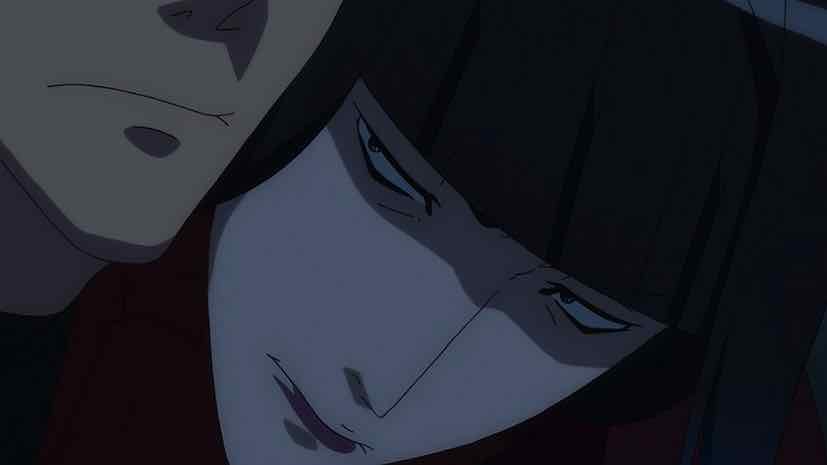 If it had been Souji or Nio making the decision, things might have gone differently. Souji seems especially bothered by the practical consequences of this course of action – the chapel are now enemies, which means that not only is their source of income gone but they’re marked men. Yuuen tells Teppa that he intends to go to the chapel and confront Kanou with the truth, and that Teppa should take charge of the group if (as seems likely) he doesn’t come back. But one wonders what will be left for Teppa to take charge of – and what possible escape they might have left to them.
If it had been Souji or Nio making the decision, things might have gone differently. Souji seems especially bothered by the practical consequences of this course of action – the chapel are now enemies, which means that not only is their source of income gone but they’re marked men. Yuuen tells Teppa that he intends to go to the chapel and confront Kanou with the truth, and that Teppa should take charge of the group if (as seems likely) he doesn’t come back. But one wonders what will be left for Teppa to take charge of – and what possible escape they might have left to them.
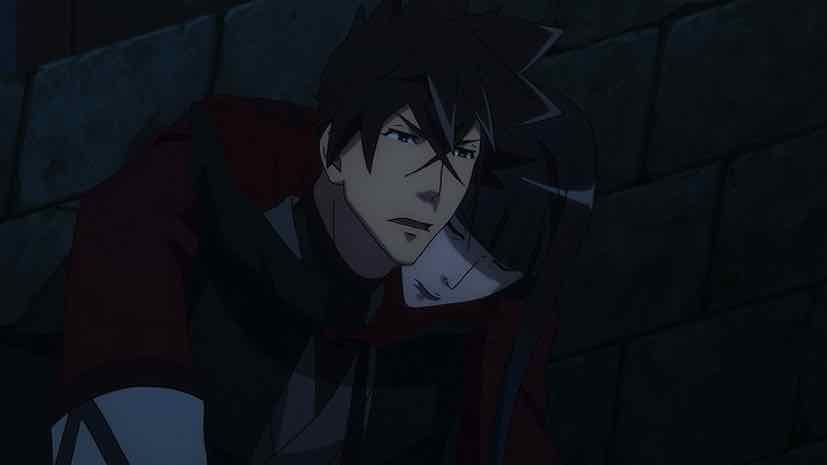 As for Liu, he survives the initial gunshot wound but is clearly on borrowed time. Yuuen manages to get him to sip some drugged tea to knock him out for a while, but he’s determined to return to his men even at the cost of his own life. Raizou, as ever prone to going off on his own, agrees to take him. These two have much in common as it turns out – including the “sentimentality” Liu refers to. Both carry the weight of previous failures, and both hate the opium trade for what it’s wrought in their lives. But Shishido and Sada are already moving against Liu’s allies, and it may be that the only thing Liu can do now is bite some gold and entrust Raizou and those Reben-ji who’ll follow him with his vendetta..
As for Liu, he survives the initial gunshot wound but is clearly on borrowed time. Yuuen manages to get him to sip some drugged tea to knock him out for a while, but he’s determined to return to his men even at the cost of his own life. Raizou, as ever prone to going off on his own, agrees to take him. These two have much in common as it turns out – including the “sentimentality” Liu refers to. Both carry the weight of previous failures, and both hate the opium trade for what it’s wrought in their lives. But Shishido and Sada are already moving against Liu’s allies, and it may be that the only thing Liu can do now is bite some gold and entrust Raizou and those Reben-ji who’ll follow him with his vendetta..


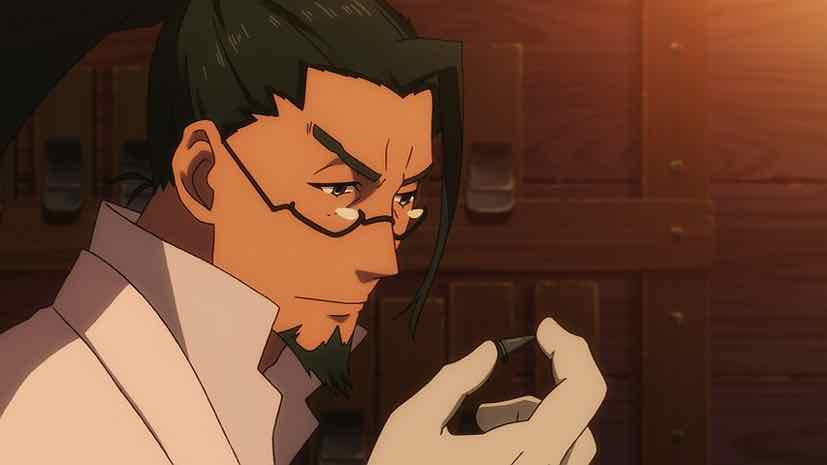
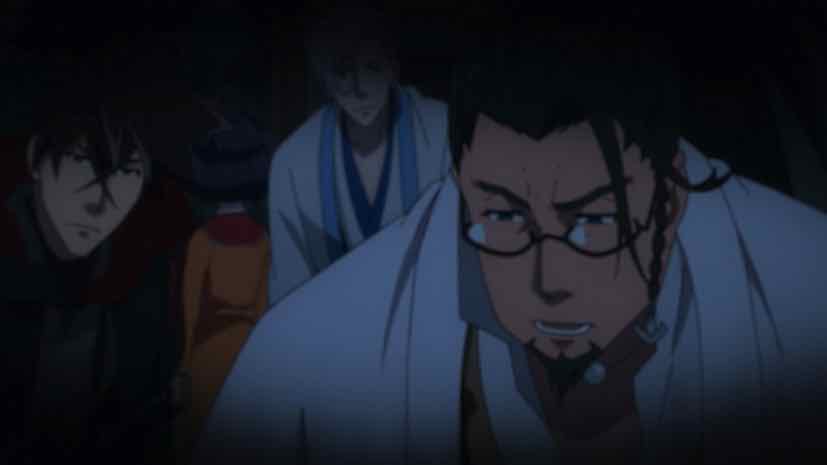
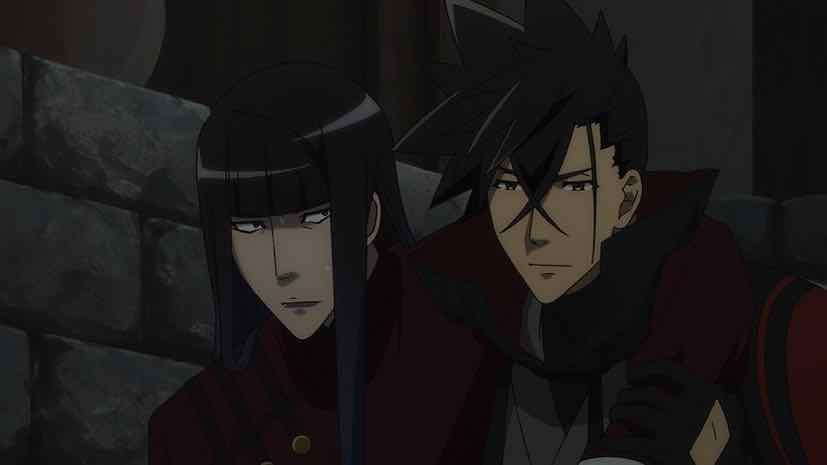
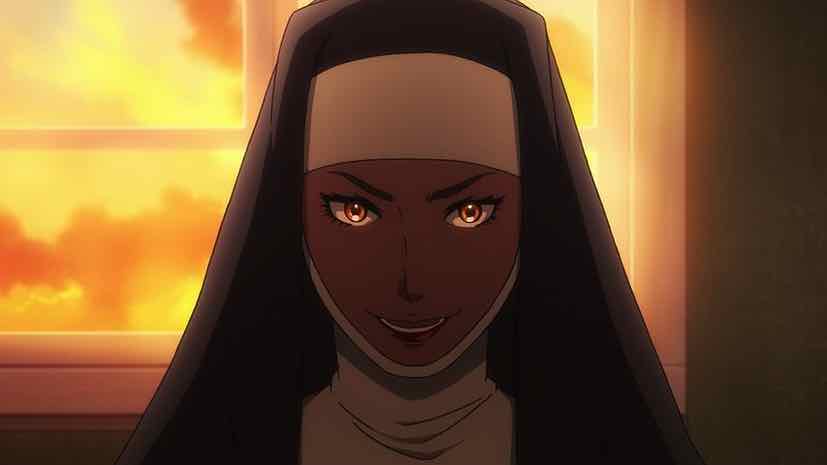
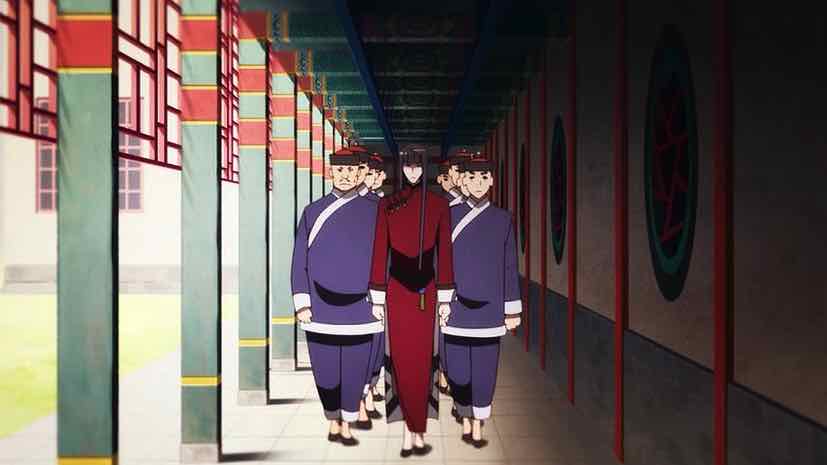
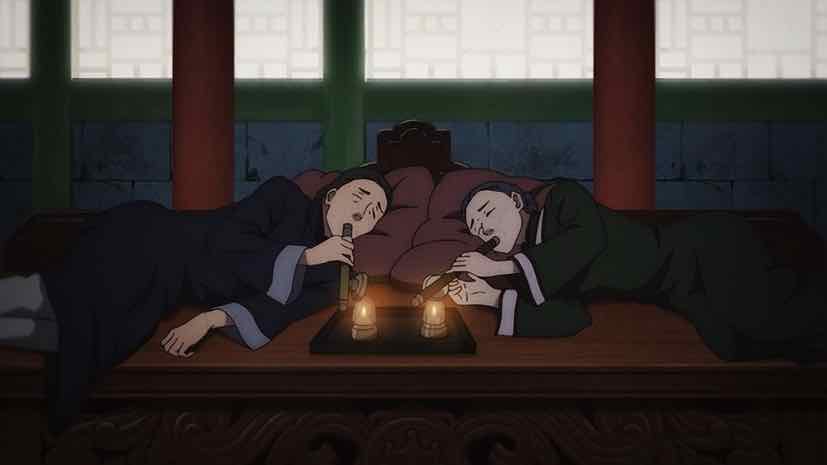
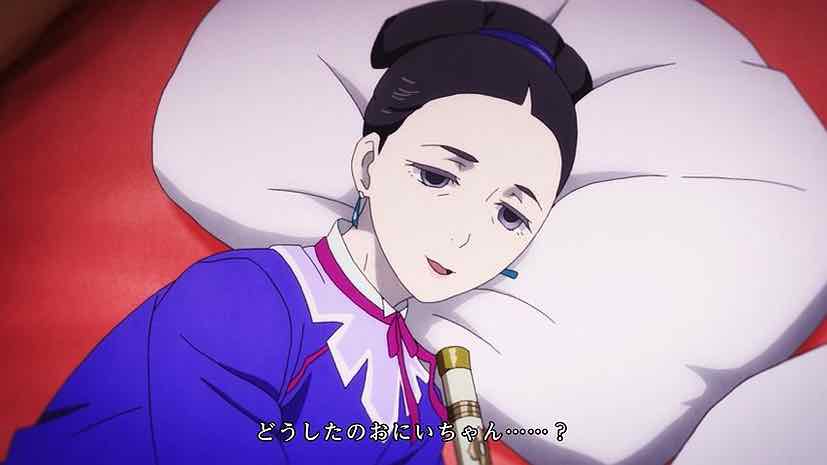
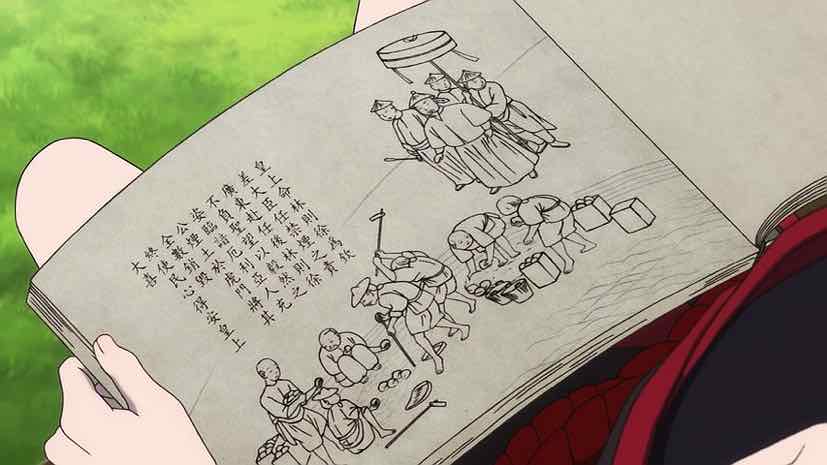
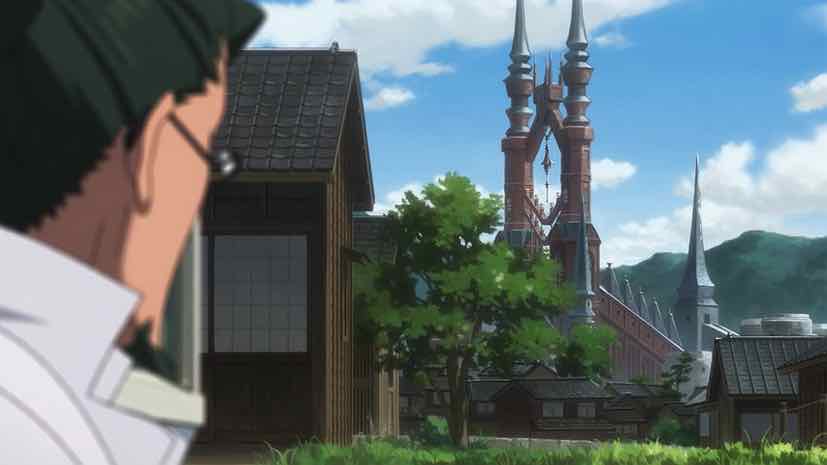
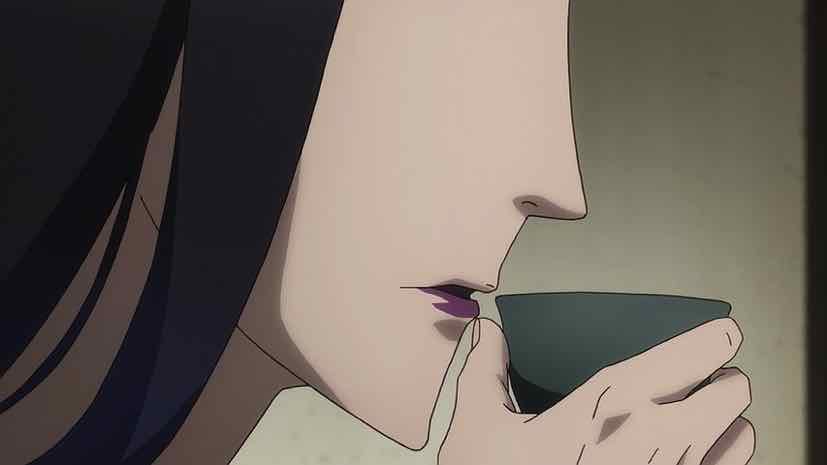
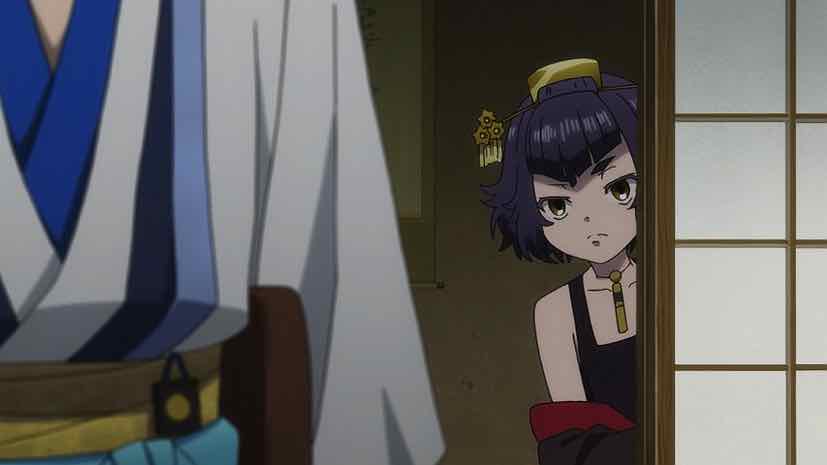
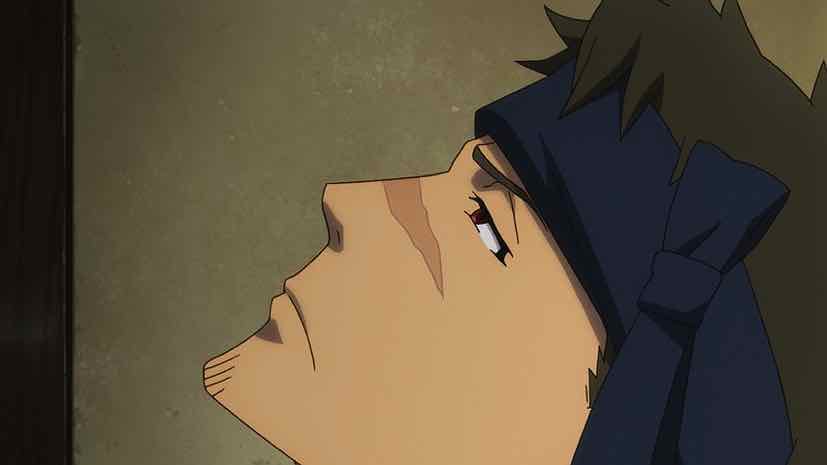


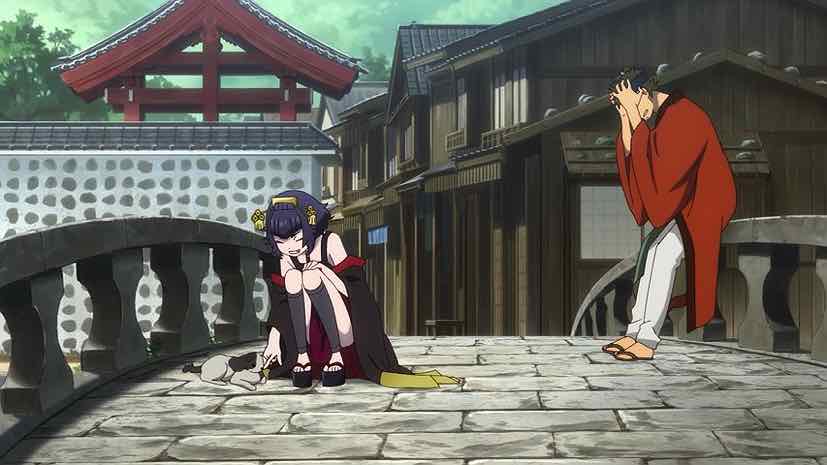
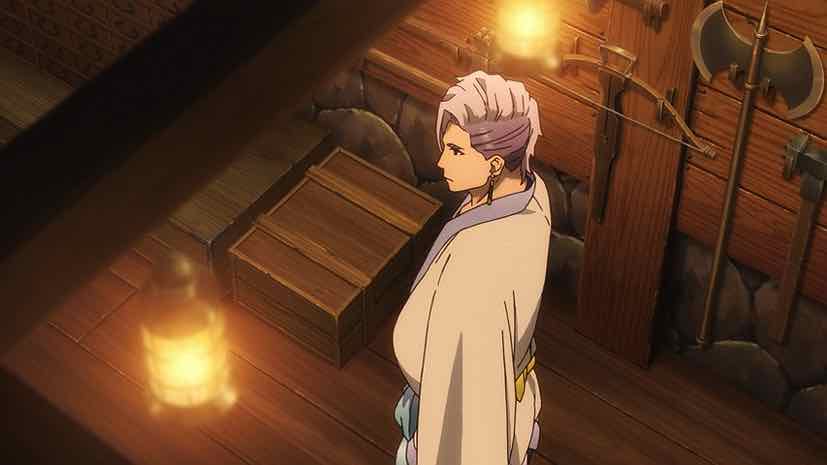
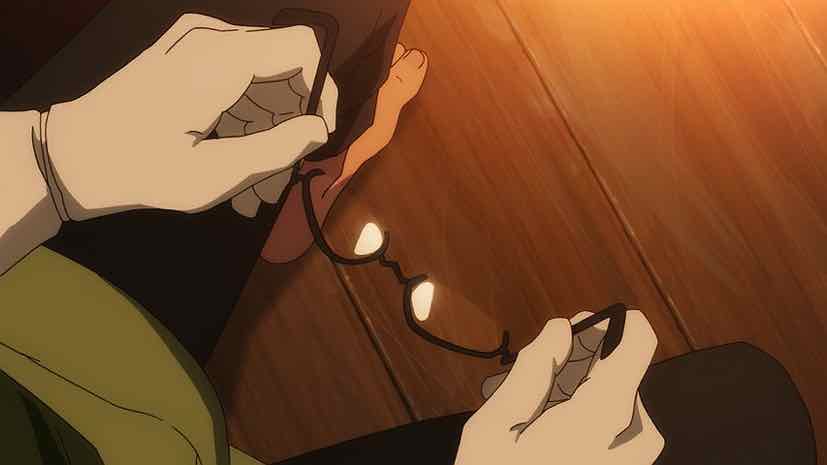


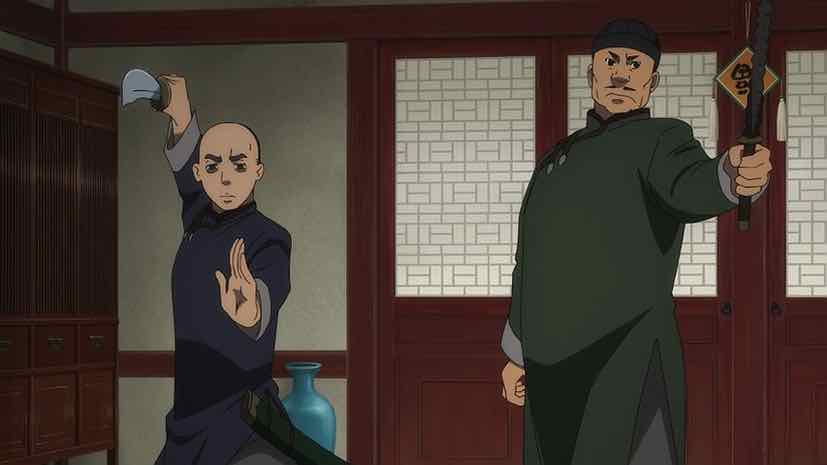

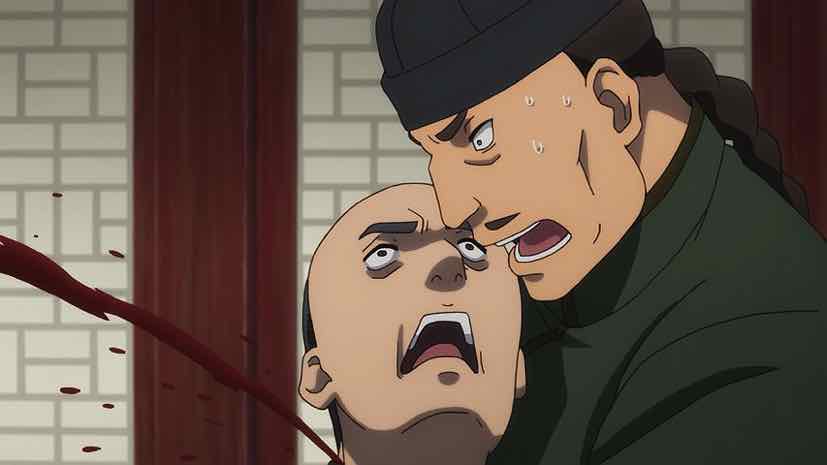
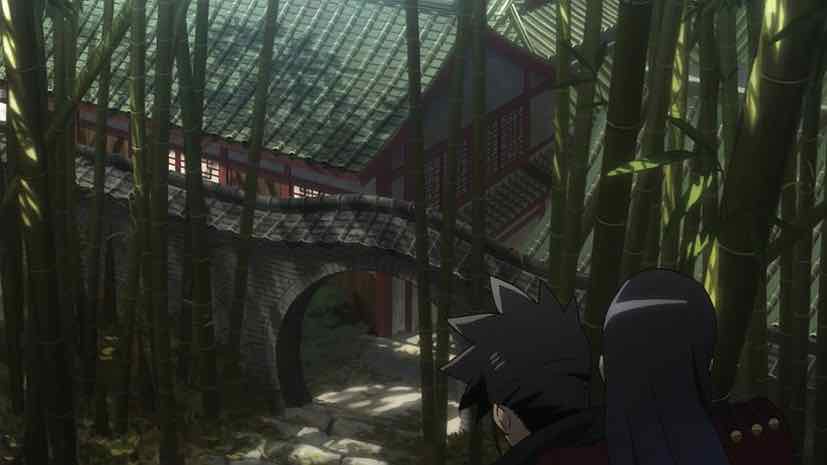

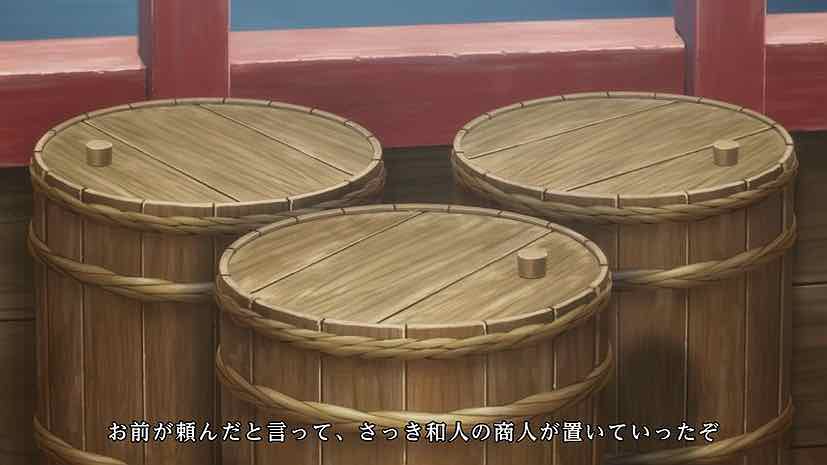
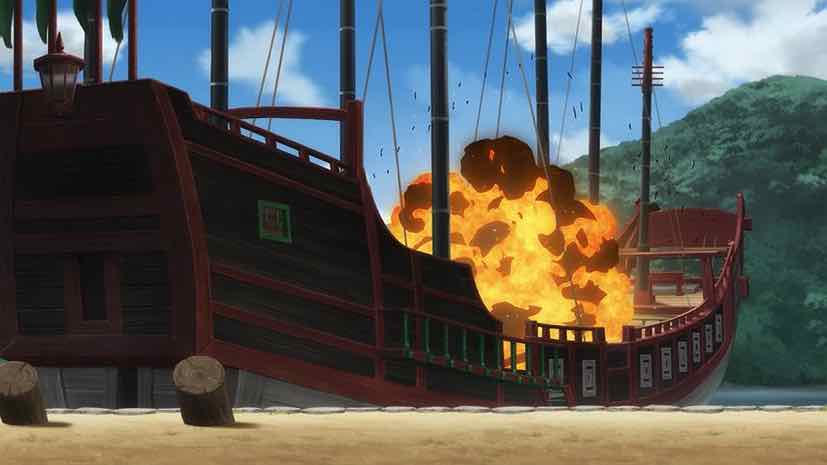
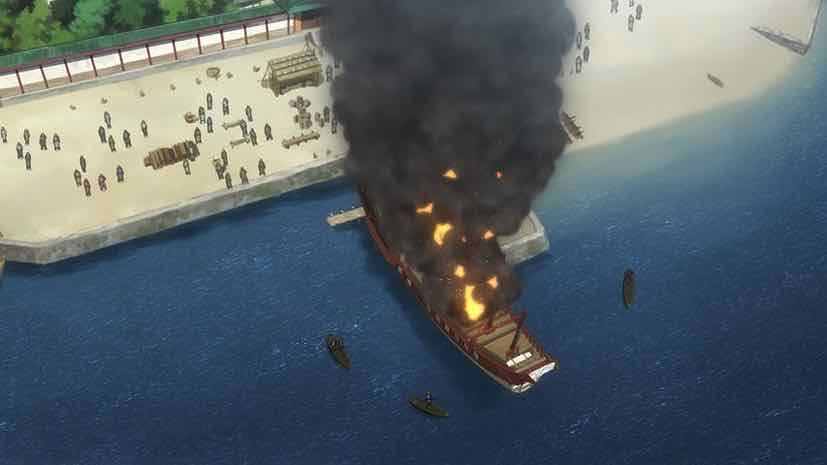
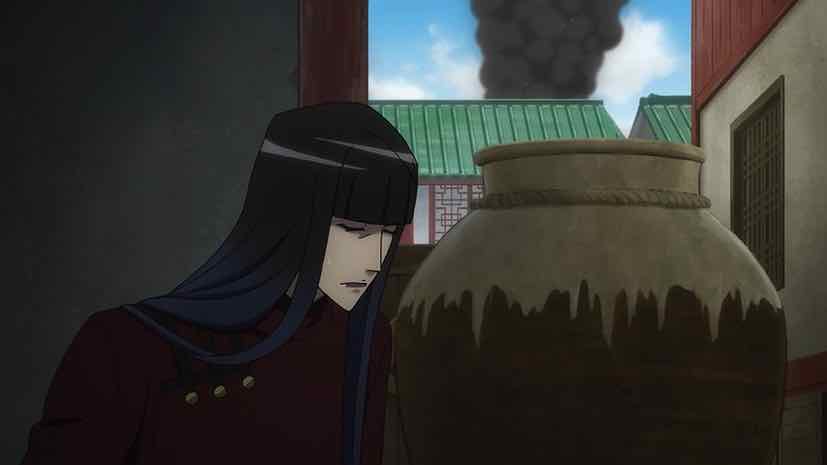
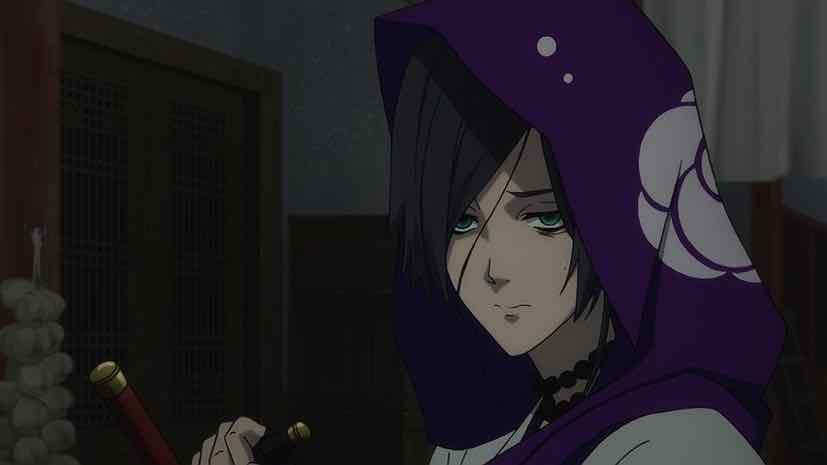
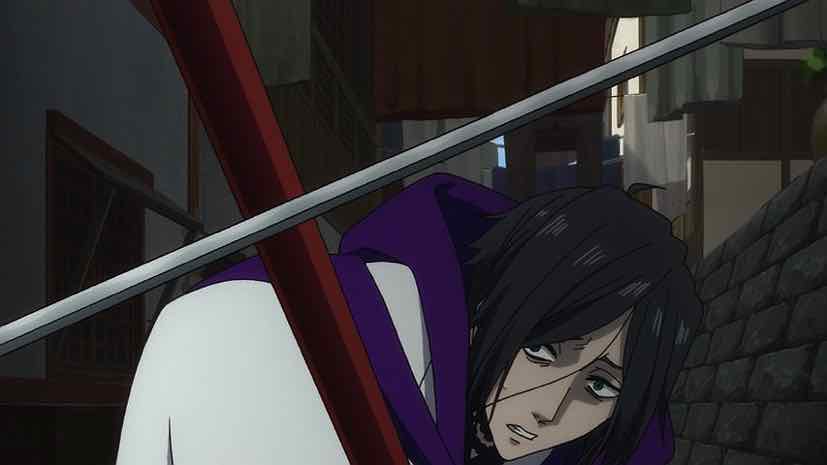
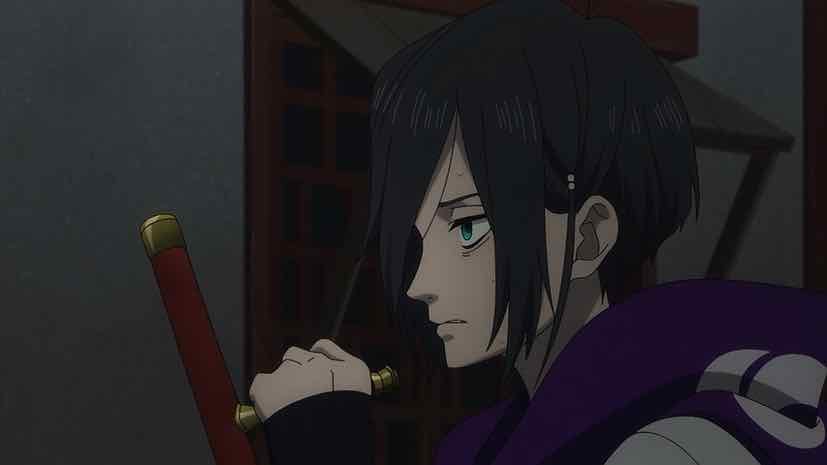
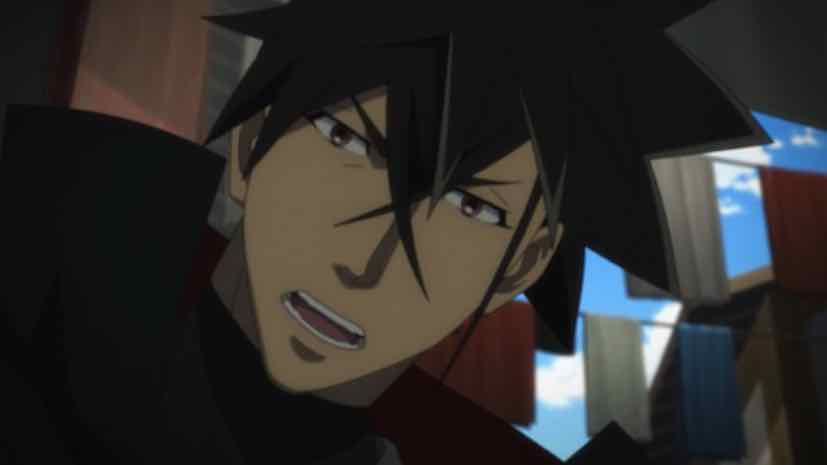
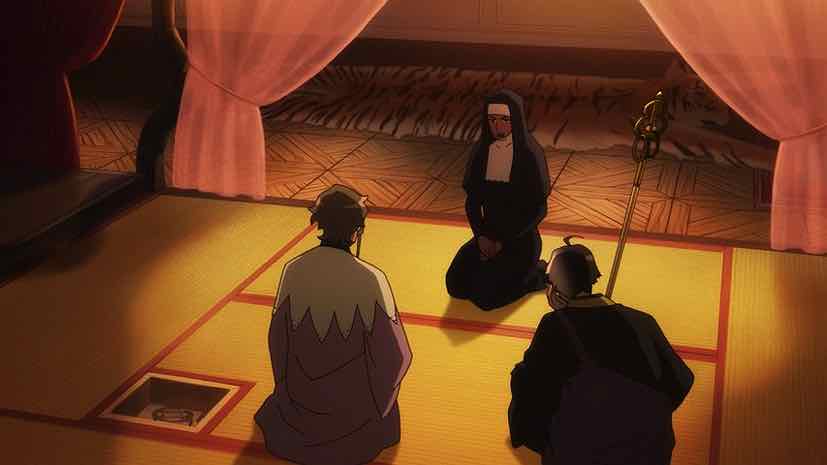
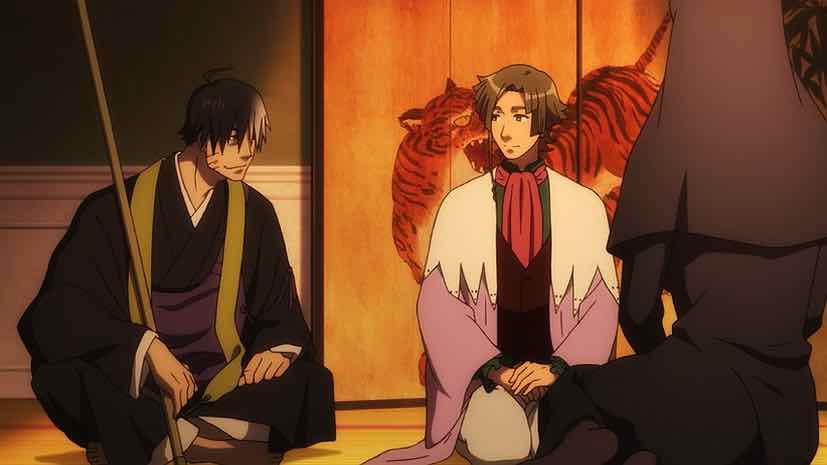

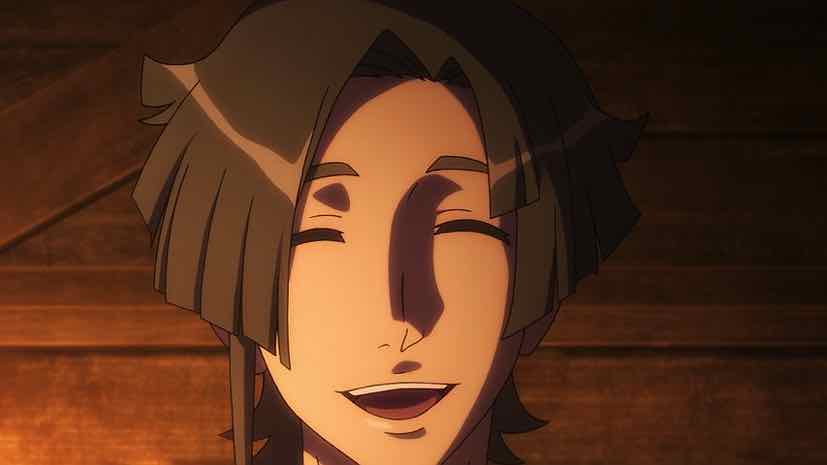


Joshua
March 3, 2023 at 11:30 pmThe thing about this series that interests me is how there’s this righteous anger from Urobuchi about the capitalist system, using the corrupt opium trade as a backdrop to tell this story about the desire for power and greed at the expense of the suffering of others. How the British merchants ended up unintentionally kicking off the events of this series for the sake of preserving their prized opium through hiding their shipment in Japan where it could be stolen by anyone. How power can corrupt religion and in turn influence the local government. How Matsumine’s greed from hoarding the opium led to so much pain and trauma in Raizou’s life. How someone like Shishido profits heavily from the trade while countless people in Nagasaki suffer in the process. How it can warp well-meaning people into doing terrible things and twist their ethics and morality. And especially how even simple terms like “revenge” can be distorted to fit the agendas of those who enact it.
And then there’s the onset of the Opium Wars to consider (which I suspect the ending to this series will imply the break out of) and its devastating effects on Liu’s homeland. Heavy stuff here.
Guardian Enzo
March 4, 2023 at 12:03 amCapitalism and organized religion have been frequent targets for Urobutcher over the years. But it seems less contrived and more organic here because of the setting and premise.
animealex
March 4, 2023 at 2:08 amThere are two small differences between killing for the bitten gold and killing only for the gold in this story. One is obvious: It takes at least some effort for the grudge holder to obtain a gold coin (most we’ve seen so far were very poor) and it seems to be an unofficial way to get “justice” in a system, which heavily favors the powerful. (Interestingly enough: The “Pyjamas Cop” acknowledges this, which is why he doesn’t seem to want to go against them.) The other side of the coin, so to speak, is just more power for the wealthy/powerful. Hire a killer to make a problem go away.
The other one is even more of a moral dilemma: It gives the Reben-ji a possibility to do some “good”, despite their murderous natures. It’s very warped, but Yuuen tries to re-socialize his misfits (even though he denies it), and the only way he knows, is through “unorthodox” social-work while keeping them out of even more trouble. Does it work though? And is it worth the effort, or should they have been killed a long time ago and the world would be better off?
Interestingly enough, even though the Urobutcher rages against organized religion, the most moral grown-up in this series was the ex-priest two episodes ago, who didn’t become a hypocrite, but left the title priest behind him after he sinned multiple ways and became more of a “holy person” afterwards.
The series is nothing groundbreaking and not very subtle with it’s message, but it works quite well. Any bets, how many named characters will be left alive in the end?
Guardian Enzo
March 4, 2023 at 9:43 amWell… I think Pajama Cop will survive because he’s the sort of cockroach who’ll survive anything. And my gut says one of the Reben-ji will – maybe Nio.
Scampi
March 4, 2023 at 6:42 pmAnd my conjecture about it being confiscated opium turned out to be wrong because it’s diverted before they could confiscate it. 🙁
Based on actual Japanese history the opium will definitely get destroyed in the end, but it seems inconceivable for the Revengers to achieve that by themselves. Maybe the pajama police will be the saving grace by being the one to destroy the opium on a tip from Ribenji-ya. That’s the least he can do despite his off-hand approach, right?
Nicc
March 5, 2023 at 2:59 pmBoy, this episode flew by for me. I was hoping to watch more and then the end credits rolled in. Losing track of the time is always a good thing. “Mutual Understanding” was a fitting title as Liu and the Revengers get on the same page.
Liu somehow survives the gunshot, but the other group sends somebody over to finish the job. They pull out in the end and they’ll definitely butt heads again. The Doc manages to save Liu’s life and they finally get a chance to talk. The tentacles of opium have reached far.
We also got a whole lot more questions about The Chapel. What really is their purpose? It seemed straightforward enough at the beginning of the series. Just who are they beyond the priest and the sister? Or, maybe their actions have nothing to do with The Chapel and they decided to go rogue on their own because of the opium.
The next episode can go in all sorts of directions, but “Nowhere to Run” doesn’t sound promising for the Revengers.